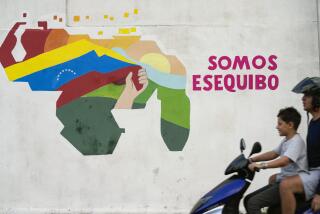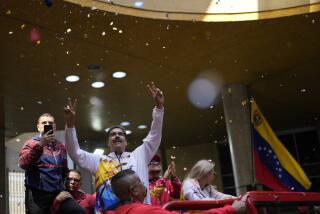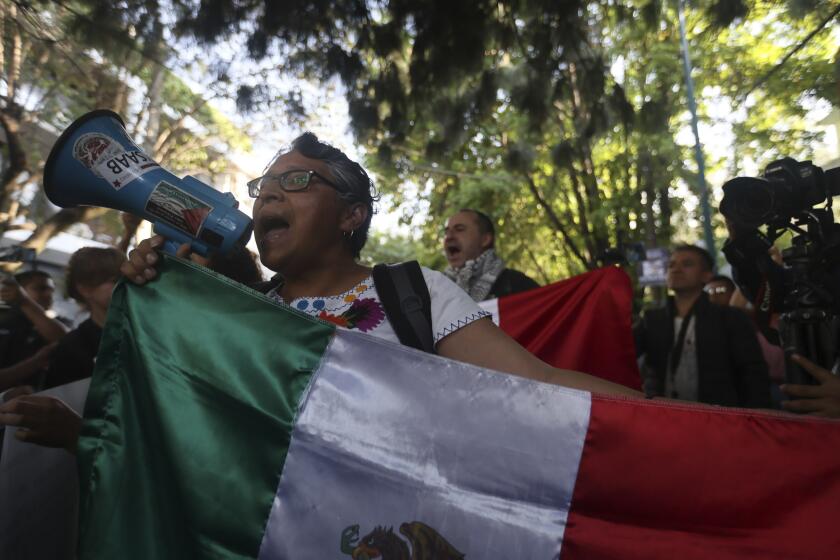Venezuelan opposition demands government release prisoners
CARACAS, Venezuela — A marathon meeting between President Nicolas Maduro and opposition leaders that ended early Friday kept alive the possibility of a compromise between the two sides to halt Venezuela’s slide toward anarchy.
Maduro hosted 11 opposition leaders Thursday night at the Miraflores presidential palace in Caracas, the capital, and the political foes leveled bitter accusations. Each blamed the other for the violence that has left 41 people dead and more than 1,000 injured since February.
“The government is obliged to send signals of change,” political commentator Juan Carlos Zapata said. If not, “there will be consequences that [opposition speakers] warned of: explosions, chaos and the risk of military action.”
The meeting was mediated by the foreign ministers of Colombia, Brazil and Ecuador, and a letter from Pope Francis was read in which he appealed to both sides to show the “heroism of forgiveness and mercy.”
Maduro opened the six hours of talks with a 50-minute address. “What do we gain from violent confrontation?” he asked. “All of us lose everything.” He said another meeting would be held Tuesday.
Luis Salamanca, a professor at the Central University of Venezuela, said opposition speakers seemed better prepared at the meeting than the government, laying out demands for ways to end the clashes that have swept several Venezuelan cities since mid-February.
Ramon Guillermo Aveledo, director of the Democratic Unity alliance of opposition parties, said the release of detainees the opposition regards as political prisoners should be a first step, as well as the disarming of pro-government vigilantes, and “pluralistic” reforms.
Government speakers, including Foreign Minister Elias Jaua, said the violence is a consequence of the opposition’s unwillingness to accept electoral victories of Maduro and his predecessor, Hugo Chavez, who died last year.
Several opposition speakers criticized Maduro’s management of the economy, highlighting food shortages, a double-digit inflation rate and the decline of domestic industry. Rafael Ramirez, minister of petroleum and mining who is also president of state-controlled PDVSA oil company, countered by saying the government had been “profoundly successful” in reducing poverty.
Noting the long waits Venezuelans commonly endure to buy basic foodstuffs, Henri Falcon, opposition governor of Lara state, who once backed Chavez, said it was the poor economy that was sparking the protests.
“We are here because we have a political conflict in the streets derived from an economic crisis that no one can ignore.”
Salamanca said the way ahead is uncertain. “The opposition has put the ball in the government’s court,” he said. “Now the government must decide what to do, give way or not.
“I think that Maduro scored a point in convening the meeting last night, but that the opposition scored many more than he did,” Salamanca said.
Special correspondents Mogollon and Kraul reported from Caracas and Bogota, Colombia, respectively.
More to Read
Start your day right
Sign up for Essential California for news, features and recommendations from the L.A. Times and beyond in your inbox six days a week.
You may occasionally receive promotional content from the Los Angeles Times.






